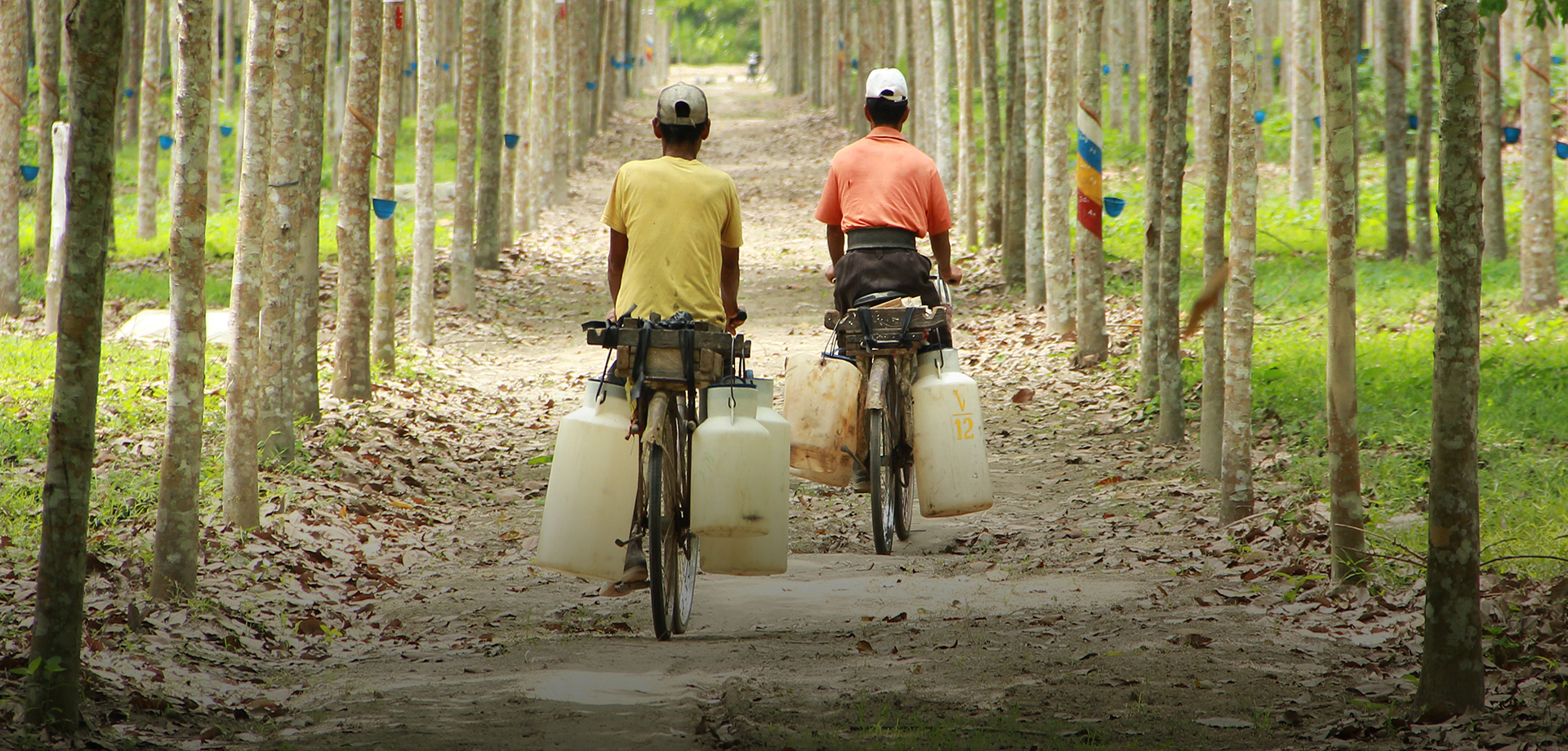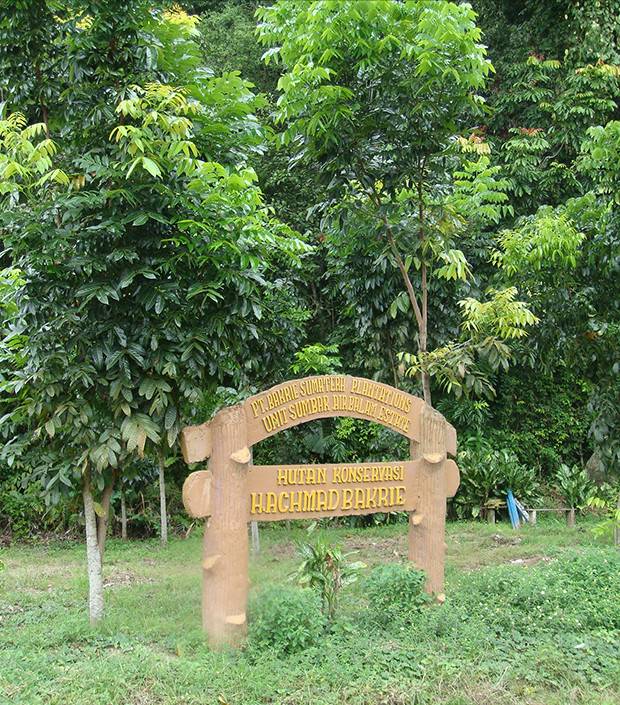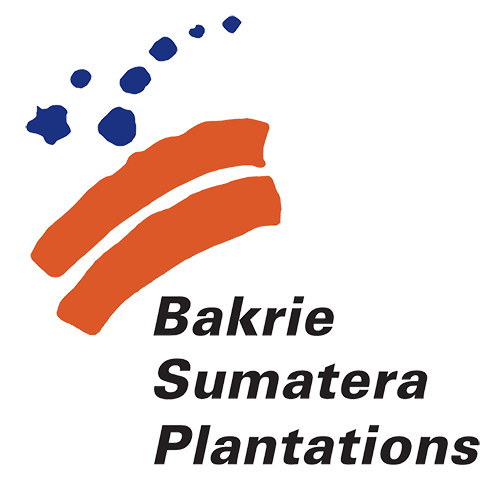
Environmental & Social
Environmental
Management

-

Our Company understands the importance oensuring environmental sustainability as an integral part of business management activities. Along with other stakeholders of the plantation industries, Our Company fully supports the Government’s programs focusing on the efforts to protect forests, peatlands, and Human Rights as well as the rights of local communities.
To support the transformation of Sustainable Palm industries, Your Company has formulated the policies to establish the Principles and Criteria which are based on the Indonesian Sustainability Palm Oil (ISPO) standards and Roundtable Sustainability Palm Oil (RSPO) standards, as well as to comply with all prevailing laws, and relevant national and international conventions. Your Company is committed to push the implementation of ISPO and RSPO as well as committed to the requirements surpassing the current ISPO and RSPO Principles and Criteria.
Energy and Water Resources Consumption Efficiency
Palm industry is often considered to be an industry which uses a lot of natural resources. Our Company’s responds to the stigma by taking the necessary initiatives to reduce energy consumption. Efforts for saving the use of energy and water, are conducted at the corporate level and every business unit.
Our Company has set the target that is suitable for the optimization of the operational conditions, in the efforts to save the use of energy and water. Environmental Management Programs are implemented in all business units to ensure the implementation of environmental protection and conservation efforts audited by certification institutions through on-site evaluation of the energy-saving efforts conducted at each operational area of Our Company.
Energy Management
The use of diesel fuel as an unrenewable energy source is aimed to decrease, including through boiler modifications from SFPO type to Membrane type, which has a higher efficiency level, with the use of the alternative energy source of biomass (shells and fibers) as fuel, which has been carried out since 2008.
Water Management
In the palm plantations, Our Company uses water ditches - both natural and man-made - to help keep the humidity of soil in peatland areas, with the composition of 1 ditch per 4 lanes of oil palm plants. The monitoring of the water height in the ditches is conducted to ensure sufficient supply of water for the oil palm plants (to contain rain water in the rainy season and as a slow release reservoir during the dry season).
Our Company continuously monitors the efficiency of water usage regarding the efforts to reduce water consumptions which have been done since 2008, in line with Our Company’s effort to communicate on a regular basis to employees about the importance of efficient water use; as well as the maintenance of water treatment facilities and timely repair of the facilities in case of leakage.
Our Company continues to encourage all business units to use water sources wisely, both surface water and ground water; prioritizing the use of surface water for cleaning process, and ground water for more sterile production process
For ground water use, Our Company strives to fulfill the need with available sources by safeguarding the water catchment area in the operational areas - including safeguarding the greenery of riverside areas - in order to avoid interfering with water utilization activites of the local community and other stakeholders.
Water supply is also provided through the utilization of recycled water from the waste liquid processed in the Liquid Waste Treatment Installation owned by every business area.
Our Company is committed to continue the efforts to ensure energy efficiency in its operational activities.
Waste Management
Palm and rubber plantations and industries produce various types of waste, both solid and liquid.
Solid Waste
- Empty fruit bunches Since 2011, Our Company have already conducted composting by utilizing empty fruit bunches. The results are applied for planting and maintenance activities of oil palm trees and hamper the growth of weeds.
- Shells and Fibers Our Company utilizes the discharged solid waste (shells) and fibers for alternative energy for boiler fuel, for mulch in oil palm nurseries and as construction materials for road pavement in operational areas.
Liquid Waste
In order to reduce river pollution by palm oil plant’s waste water, Our Company utilizes the plant’s liquid waste as organic fertilizers to increase the production of fresh fruit bunches (FFB). The plant’s waste water is treated through the land application system. Furthermore, in order to support waste management and development of renewable energy as well as to reduce greenhouse gas (GHG) emissions, in 2022 Our Company initiated the construction project of Bio-CNG processing facilities and the development of a composting system through the utilization of POME liquid waste.
In addition, to prevent soil pollution due to diesel-fuel spill during emergency conditions, Our Company uses storage tanks in the Bunut warehouse as well as develops water resistant floor and container.
Furthermore, in preventing the pollution of soil and water, as well as in maintaining environmental sanitation and employees’ health, Your Company handles the anorganic waste management on a sustainable basis, in coordination with the local Regencial Government.
Waste Water Treatment
For the Waste Water Treatment Facilities (Instalasi Pengolahan Air Limbah - IPAL), Our Company operates 6 processing ponds in Sumut 1 Business Unit (BSP), 7 processing ponds in Sumbar Business Unit (BPP), 8 processing ponds in Jambi 1 Business Unit (AGW/AMM), 11 processing ponds in Jambi 2 Business Unit (SNP) and 12 processing ponds in Sumut 2 Business Unit (GLP).
Hazardous Materials Waste
The Government has applied more stern regulations on the handling of hazardous materials waste since 2014, requiring tripartite agreements among companies, collecting site operators and waste treatment operators.
Our Company has always been committed towards the regular monitoring of the use of waste, especially those categorized as hazardous materials, starting from supply transport, warehouse storage, usage procedures, to after-use handling.
Hazardous waste in the form of lubricant oil from production process in signicant volume; coming from the electricity power generator, turbine, vehicles, gear boxes of production machinery and service center activities. In addition, other hazardous waste can be in the form of used batteries, used oil filters, fluorescent/ mercury lamps, used toner, used dust cloth and packaging of chemicals used in the plantation operations.
In terms of waste management, Our Company usually undergoes several stages as follows:
- Requesting the license for temporary storage of hazardous waste issued by the Environment Office in Jakarta which is valid for three years;
- Storing the hazardous waste for 90-180 days in compliance with prevailing Government Decrees;
- Transporting the hazardous waste to collecting and disposal firms which already have the necessary licenses from the Ministry of Environment and Forestry
-

Biodiversity Protection
Maintaining biodiversity in the operational sites has been one of Our Company’s commitments towards balancing the operational activities with the natural environment and also in line with the requirements for the ISPO and RSPO certification process regarding the preservation of conservation areas. In 2022, Our Company did not conduct any new land clearance.
Conservation Areas
Our Company develops and maintains conservation areas in several business units, by allocating land areas of 15-30 hectares which are rich in biodiversity and not planted with commodity plants. These conservation areas are developed as clusters in the middle of the plantation sites. This cluster scheme is used as a reference for the development of similar areas in the future. The total conservation areas of Our Company in 2022 covered 63.45 Ha.
The existence of these conservation areas signifies that Our Company always maintain and preserve biodiversity as well as the traditional and cultural heritages in Our Company’s plantations. Our Company’s First Conservation areas has been inaugurated on 11 September 2006, located in the Air Balam estate in West Pasaman, which is run by the Sumbar Unit. Covering nearly 30 hectares of area, the forest is named after the founder of the Bakrie Business Group, H. Achmad Bakrie.
To date, Our Company is safeguarding the conservation areas which serves as areas for the preservation of rare flora and fauna, water absorption, and for educational purposes. Jointly managed with the Forestry Office, the forest has been safeguarded by the local community who has been well informed about sustainable forestry.
Our Company also manages the conservation areas in the operational areas of Sumut 1 and Jambi Units, covering 19.10 Ha and 14.35 Ha respectively.
Miniature Conservation
Forest Our Company through the Jambi Unit has also developed a 17 Ha “Miniature Conservation Forest”, located in the middle of palm estates and close to the local residential areas; aimed at preserving and developing prevailing biodiversities, through the planting of endangered plants in cooperation with related institutions in order to preserve the current ecosystems, the protection and preservation of flora and fauna inside the forest, the addition of flora species, as well as the implementation of monitoring and reporting measures; also functions as water retention area as well as O2-producing and CO2-absorbing area, sources of animal feed and recreational area for local residents and employees.
The Miniature Conservation Forest had been an awardee in the triennial Indonesian CSR Awards 2014 held by the Corporate Forum for Community Development (CFCD).
Vegetation Forests
Our Company through the Jambi Unit since 2011 has developed the vegetation forests in several estates aimed at preserving the environment, especially as the habitats of animals and plants, in the efforts to restore and enhance environmental quality and improve the balance of the ecosystem. The first vegetation forest has been developed in Tanjung Jabung Barat, Jambi. The vegetation forests and the habitats inside have been left to run through their natural course. Our Company does not conduct any special monitoring activities over the habitats of animals and plants within.
Biologically-Controlled Pest Handling
Our Company implements biological control over pest handling to reduce the use of pesticides / other chemical substance, in line with the focus to maintain the quality of palm production as well as the implementation of environmentally-friendly operations. The pest handling by biological control include the use of Bunga Pukul Delapan plant (Turnera ulmifolia and Turnera subulata) as the host for insects preying the Ulat Api pest (Setothosea asigna), as well as the breeding of Owls (Tyto alba) as predators of rats.
Maintaining High Conservation Value Area
In addition to developing and maintaining the conservation area that are already rich in biodiversity, Our Company also identifies the areas with high conservation value (HCV) through the assessment of the estate coverage.
Our Company conducted a re-assessment of HCV / High Carbon Stock (HCS) areas in 2021, to update the identification process of the biodiversity managed by Our Company and to comply with sustainability certification standards (ISPO and RSPO). Our Company also conducts periodic observation of the types of protected flora and fauna which might be affected by the operational activities.
-

In line with the operation of the plantation business, Our Company has always been involving local communities in environmental preservation programs.
Greening Program
In all business areas, Our Company safeguards the greenery of the riverside areas, some 10 meters of both sides of the river. The greening program conducted by Our Company includes the planting of non-commercial plants, such as hibiscus, mahogany and bamboo.
Certification
The certification process provides a measurable standard of operational feasibility. Our Company’s commitment to complete the certification process in the related fields is not only an attempt to meet the requirements for operational sustainability and to gain recognitions at national, regional and international levels; but also a part of the efforts to provide assurance to the stakeholders in terms of the creation of sustainable values.
The implementation of Environmental Management as well as Occupational Health and Safety (OHS) activities in Our Company is conducted in compliance with the mission of Our Company by using the standards of ISO 14001:2015, ISO 9001:2015, SMK3, PROPER, ISPO, RSPO and SNI 9001:2015, SPPT SNI (SIR and RSS).
Indonesian Sustainable Palm Oil (ISPO) Certification
Our Company has conducted the ISPO certification process in the plantation and factory of all Palm Segment Business Units since 2014. The certificates had been received by Sumut 1 (BSP), Sumbar (BPP), Jambi 1 (AGW and AMM) and Jambi 2 (SNP) with a total certified area of 31,141 Ha. The certification process is still ongoing for the Sumbar (CCI), Sumut 2 (GLP), Kalsel (MIB) and Bengkulu (AM) Business Units.
Roundtable Sustainable Palm Oil (RSPO) Certification
Our Company has obtained its first RSPO certificate at the Sumut 1 Business Unit since 2010 (currently valid until June 2026) and at the Jambi 1 Business Unit in 2012 (currently valid until August 2022), with a total certified lands of 19,117 Ha. The certification process is still on going for Sumbar (BPP and CCI), Jambi 2 (SNP),Sumut 2 (GLP) and Kalsel (MIB) Business Units. The compliance with the RSPO requirements has proven Our Company’s very high commitment to sustainable and environmental-friendly operations, which had been initiated long before joining the RSPO.
OHSMS (SMK3) Certification
Our Company has complied with the National Standards for Occupational Health and Safety Management System (OHSMS / SMK3) issued by the Ministry of Manpower. This is part of the commitment to create and preserve occupational health, safety and security as well as to prevent potential work accidents which might inflict economic and non-economic losses.
The implementation of OHSMS / SMK3 in Our Company covered training for preparedness, formulation of standard operating procedures, implementaiton of OHS patrols, socialization of security measures for visitors to business operational sites, safety director for workers, organization of emergency response simulation, hazards identification process, risk valuation and control process, as well as internal and external audit process.
ISO Certification
Our Company has obtained the ISO 9001:2015 certification on Quality Management System and ISO 14001:2015 certification on Environmental Management System at the corporate level and Sumut 1 Business Unit (BSP).
SNI Certification
Related to the national quality standards, the Sumut 1 (BSP) Business Unit of Our Company has also obtained the SNI (Indonesian National Standards) certification that has been compulsory for rubber plantation products since 2011.
Sumut 1 (BSP) and Bengkulu (AM) Business Units have also obtained SPPT SNI certification for SIR and RSS rubber products.
PROPER Ranking
Our Company is also ranked based on the Evaluation Program for Corporate Performance Rating in Environmental Management (PROPER) of the Ministry of Environment and Forestry. In 2021 the Sumut 1 (BSP), Sumbar (BPP), Jambi 1 (AMM), Jambi 2 (SNP), and Bengkulu (AM) Units attained the Blue PROPER rating for the National level.
Environment Problems Complaint Handling
For environment-related problems, Our Company provides the opportunity for all employees at all levels to file complaints through related business units.
Social & Environmental Investment Fund
Our Company has the policy to allocate 1.5% of the annual net profit for social investments. Our Company continued to conduct CSR programs in 2022, which similar to the previous year focused on cooperation schemes with the Bakrie Business Group, Regional Governments and local communities.
In 2022, the total expenditures for environmental protection amounted to IDR 10,912,849,015 covering the costs for the certification process and environmental management programs in all units.
As part of Your Company's efforts to support social development and community empowerment, most of the workforce in all Business Units are local residents or those who have long resided in nearby areas.



